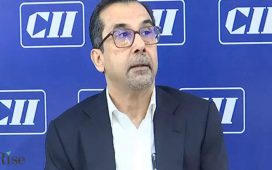Unlock the Editor’s Digest for free
Roula Khalaf, Editor of the FT, selects her favourite stories in this weekly newsletter.
The majority of Carpetright’s stores will close with almost 1,600 workers set to lose their jobs despite a deal by its founder’s family to buy parts of the UK flooring and carpet seller.
Administrators at PwC said on Monday afternoon that only 54 of its 273 stores were bought by rival Tapi — set up by the son of Carpetright’s founder — with the rest expected to shut. A total of 308 jobs would be protected from 1,898 roles as part of the deal.
Zelf Hussain at PwC said the chain “has fallen victim to challenges facing many retailers, especially those selling big-ticket items”.
Several factors including a big reduction in consumer spending due to cost of living pressures, lower home sales and a “debilitating” cyber attack in April, which left it unable to trade for a period of time, contributed to its demise.
Some customer orders would not be honoured, PwC added.
Jeevan Karir, managing director of Tapi, said that “saving the entire business was unviable” as it was “materially lossmaking”.
Tapi also bought the intellectual property and brand in a separate agreement as well as two warehouses. The shape of the deal was influenced by a possible intervention by the UK’s competition authority, Karir added.
The developments will see parts of Carpetright return to founder Lord Philip Harris’s family after years of competing with each other.
The British retailer started life in 1988 when Harris opened his first shop in east London. It subsequently listed on the London Stock Exchange in 1993 having expanded rapidly across the country but in more recent years the company has had a challenging time.
Difficult trading conditions as well as competition from Tapi have added to its travails.
Harris stepped down from Carpetright in 2014, five years before the chain was taken over by former fund manager Talal Shakerchi’s Meditor, which was its lender.
In 2015 Martin Harris, the son of Philip Harris, founded Tapi, which grew thanks to his father’s backing and that of other wealthy individuals such as DFS founder Lord Graham Kirkham. It often targeted locations where Carpetright stores were already trading.
The news comes as retailers specialising in other areas of discretionary spending, including furniture, continue to face challenging markets.
DFS, the UK’s largest retailer of living room furniture, last month cut its profit expectations by nearly 50 per cent, citing consumer demand in the upholstery sector at a “record low”.









